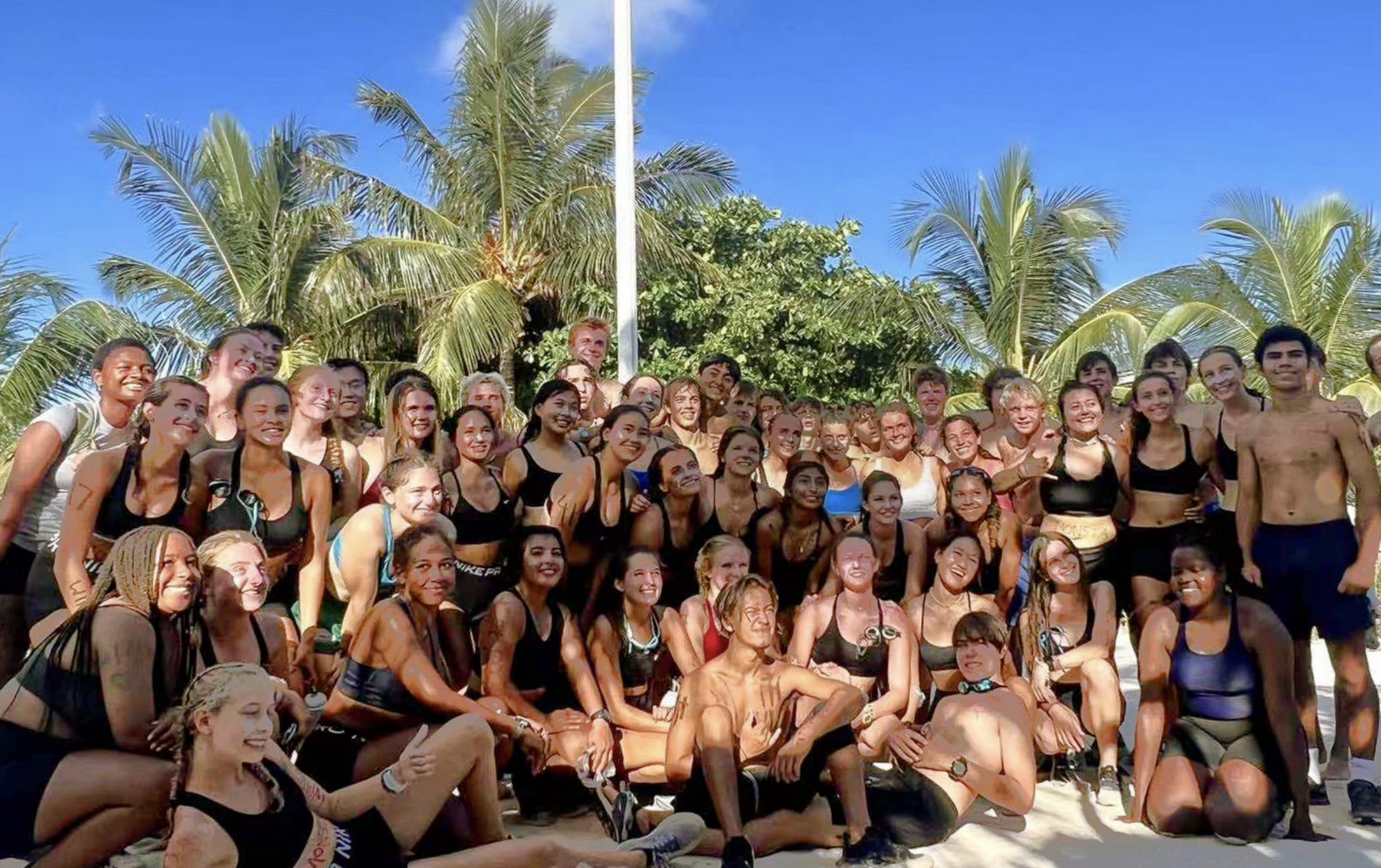Thursday, April 24
Character and Community at The Island School
Jenny Zhao '25 (Features Editor, 144th Board) in Features | October 27, 2023

As a respected international research and education organization, The Island School is an institution known by many students on Lawrenceville’s campus. Students undergo a transformative period of physical training and academic enrichment while being immersed in the breathtaking landscape of Eleuthera, an island in The Bahamas. Founded by two members of the Lawrenceville faculty in 1999, the institute offers both semester-long and six-week summer programs for high school students, which each year, a handful of Lawrentians attend.
Riley McKibben ’25 participated in the program during the summer prior to her IV Form year. Because she was introduced to Island School by a prefect during her II Form year, her interest in attending the program was piqued long before this summer. Reminding McKibben of her “memories at sleepaway camp,” she wanted to “emulate something similar in [her] summer experiences” in high school. A key feature of The Island School experience is the technology-free policy. As soon as she landed in The Bahamas, McKibben was immediately “ready to start” by turning in her phone. She recalls that students were given journals in which they would “write down all of [their] thoughts” whenever they felt the temptation to check their phone. Upon reflecting on her experience, McKibben feels she now “uses [her] phone less” as a result of the six weeks.
West Violich Mecklenburg ’25 attended the same session as McKibben. Having had close ties with The Island School, he visited Eleuthera and “had a sense of the campus” prior to arriving for his program. A typical morning for students on the island, according to Mecklenberg, involved the group waking up at 6:30 AM for “morning exercise,” which typically consisted of a run, swim, or a combination of the two.
Mecklenburg had extremely positive experiences in his three classes: “Tourism and Development,” “Marine Ecology,” and “Sustainable Systems.” Reflecting on his experience, he recognized that “there’s a lot of parallels between [what he learned] about how humans impact the environment” and his Honors Environmental Science course at Lawrenceville.
Inside the classroom, McKibben also noticed a strong similarity between Lawrenceville and The Island School’s courses. Both Harkness-based, students participated in discussions with small cohorts. With advisory groups structured like those at Lawrenceville, her time at The Island School reminded McKibben “of home and Lawrenceville,” so much so that she doesn’t “feel like [she] could decipher between the two.”
For McKibben, a clear highlight of the program was the 40-hour solo camp. Alongside other students, she was given only “a tarp, ten liters of water, two bagels, an apple, an orange, and a cup of Cheerios” to camp on the beach alone for nearly two days. Prior to the kickoff, students took a “vow of silence” to not speak with each other during the time period. Serving as the conclusion of her time in The Bahamas, McKibben feels that despite her initial apprehension heading into the solo camp, she had “no distractions,” departed being “grateful that [she] was able to take time for [herself].”
Both McKibben and Violich resonated with The Island School’s emphasis on teamwork and its commitment to “start as a team, work as a team, and finish as a team.” As Violich puts it, “everyone around you has a place in their community and contributes to their community.” It’s clear that the vibrant community at The Island School was the driving force behind an impactful experience of a lifetime.
Related Articles
- A Sweet Return: Melba Reopens with New Flavors and Community Spirit Ella Song ’27
- The Clock’s Ticking: A Rush to Sort Out Scheduling Conflicts Bella Wu ’28
- Debunking the Dining Hall Debate: Is Lawrenceville’s Dining Really That Bad? Isabelle Lee ’27
- Senior Profile: Sophie Cheng ’25 Katherine Qiu ’27
- Dear Pearl: The Reveal! Pearl ... and Riley McKibben ’25
Recent Articles
- Announcing: Valedictorian, Aurelian Speakers, and Faculty Speaker Sophie Liu ’27
- Senior Profile: Sophie Cheng ’25 Katherine Qiu ’27
- Debunking the Dining Hall Debate: Is Lawrenceville’s Dining Really That Bad? Isabelle Lee ’27
- Welcoming Our New VPs for 2025-2026 Sophie Liu ’27
- A Sweet Return: Melba Reopens with New Flavors and Community Spirit Ella Song ’27